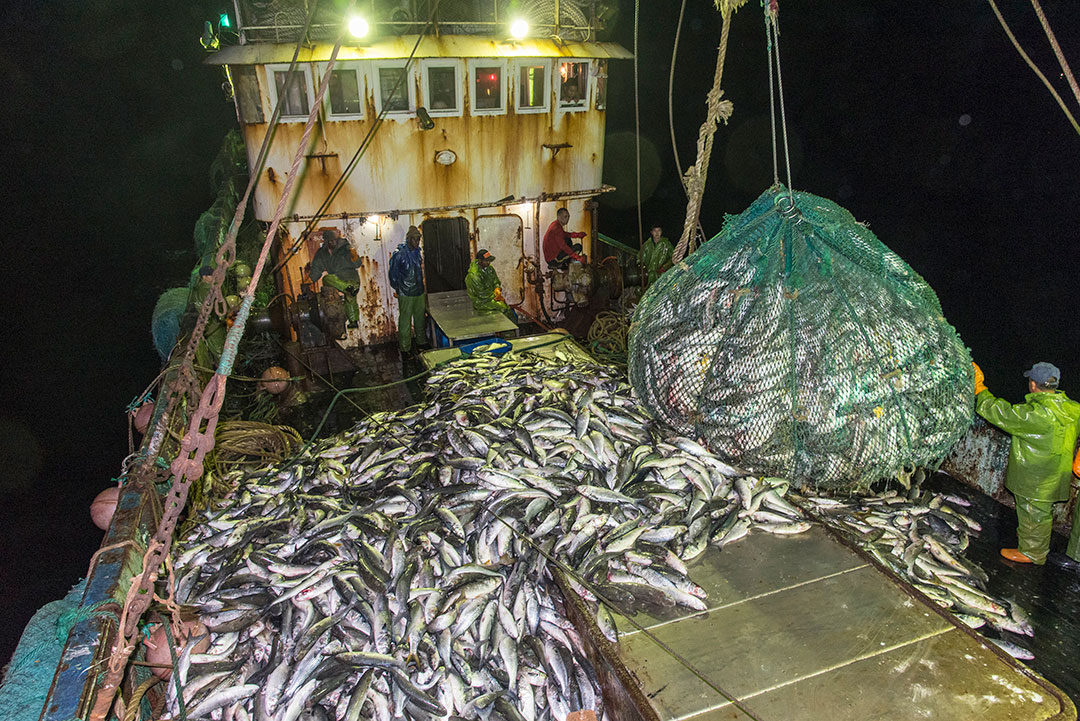China Protects Native Fish While Depleting World’s Stocks
ADF STAFF
The Chinese government recently imposed a strict 10-year fishing ban on the 6,300-kilometer-long Yangtze River to preserve native fish populations.
The move was made in response to a significant drop in China’s domestic fish catch, which went from 7.65 million tons in 2017 to 6.82 million tons in 2019. For several years, China has aggressively policed its waters. In 2017, it impounded 7,000 vessels, seized 400,000 nets and recorded 10,343 arrests on fishing-related charges in 2017, according to a SeafoodSource report.
China’s hard-nosed approach to illegal domestic fishing stands in contrast to its distant-water fishing fleets in Africa, where Chinese trawlers are known for employing illegal, unreported and unregulated (IUU) fishing practices that decimate local fish stocks and destroy ecosystems. In many parts of Africa, local authorities simply do not have the resources to enforce maritime laws.
“The Chinese distant-water fishing fleet is active all across the African continent, as China’s massive fishing fleet has overfished its own waters,” Peter Hammarstedt, director of campaigns for Sea Shepherd Global, told ADF in an email. Sea Shepherd works with governments to combat IUU fishing in Benin, Gabon, The Gambia and Liberia, often helping West African forces arrest and fine Chinese trawlers.
“A surplus of domestic fishing capacity — and a fish population deficit at home — are the perfect ingredients for the export of unsustainable fishing methods, overfishing practices and illegal fishing,” Hammarstedt said.
Chinese trawlers commonly use huge nets capable of catching tons of fish per day — far beyond the capacity of local fishing boats — often in zones designated for artisanal fishermen who depend on fishing for income and food.
Chinese vessels are known to underreport catches, deactivate their automatic identification systems (AIS) to avoid detection in protected waters, cut the nets of local fishermen, and ram local boats. The illegal activity sometimes results in death.
Artisanal fishermen in Mauritania called for the removal of Chinese trawlers from its waters in early September when a large Chinese trawler was accused of deliberately striking a local fishing boat, killing three Mauritanians. China operates under a 25-year deal that allows it to fish in Mauritania, but the Chinese trawler had turned off its lights and AIS while fishing in an area reserved for artisanal fishermen in the early morning darkness.
China can claim such incidents as private actions, but a recent report published by the Yale School of the Environment contends that China’s distant-water fishing fleets help its government “assert territorial domination.”
“What China is doing is putting both hands behind its back and using its big belly to push you out, to dare you to hit first,” Huang Jin, former director of the Center on Asia and Globalization at the Lee Kuan Yew School of Public Policy in Singapore, said in the Yale report.
In Mauritania, China’s Poly Hondok fishing operation is now its largest overseas fishery base, which ships 10,000 tons of seafood a year while also producing fishmeal, as do many other Chinese companies in Africa, according to a report by SeafoodSource.
China says its distant-water fishing fleet has about 2,600 vessels, but studies such as one by the Overseas Development Institute say the number is closer to 17,000. The U.S. distant-water fishing fleet, by comparison, has fewer than 300 vessels, according to the Yale report.
The exact number of vessels in China’s distant-water fishing fleet is hard to gauge, as many are flagged to other countries, mostly African nations, according to the Coalition for Fair Fisheries Arrangements.


Comments are closed.